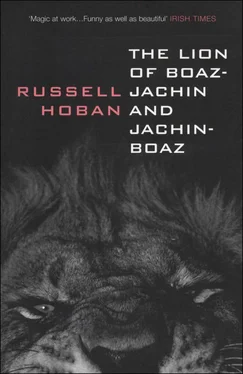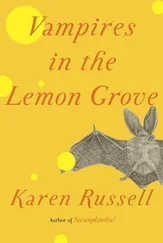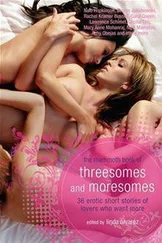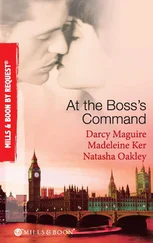‘My son,’ said Jachin-Boaz. ‘He’s not me turned around. I don’t know who he is. I don’t know him very well.’
‘Who can know anybody?’ said the bookshop owner. ‘Every person is like thousands of books. New, reprinting, in stock, out of stock, fiction, non-fiction, poetry, rubbish. The lot. Different every day. One’s lucky to be able to put his hand on the one that’s wanted, let alone know it.’
Jachin-Boaz watched the bookshop owner walk out of the hospital looking modestly carefree and comfortable, tried to remember when he had last felt easy in his mind. Soon I’ll be out of stock, he thought. All the books that I am. And out of print too, for good. Leaving a new son behind. No way back. A wave of terror flooded his being. No, no, no. Yes. No way back. Goddam her. Goddam both of them — the one he had left and the one who now stood between him and the one he had left. No going back. He didn’t want to be a father again. He wasn’t yet finished with being a son, and here was the last moment coming closer with every beat of his heart, that beating that he was aware of most of the time now. His heart and all the other organs in his tired body, no rest for forty-seven years. And the imminent final rest intolerable to think of. The last moment will be now , she had written.
He tried to find hiding places from the terror in his mind so that the letter writer and the tightly furled man would not complain of his clanging, and he avoided anyone else’s company. He availed himself of as many tranquillizers as the nurses would give him, slept as much as possible, entertained himself with sex fantasies, sang songs mentally. The song that became habitual had only one word: lion . Lion, lion, lion, sang his mind to dance rhythms, battle tunes, lullabies.
He did not write to Boaz-Jachin or call him on the telephone. When the doctor made his rounds Jachin-Boaz spoke reasonably and cheerfully, said that the rest had done him good and that he was eager to get on with his life.
‘Tockly,’ said the doctor. ‘There’s a world of tickerence between the way you tock now and the way you ticked before, eh?’
‘Yes, indeed,’ said Jachin-Boaz.
‘New ticksponsibilities coming up now, eh?’ said the doctor. ‘Tockspectant father, I hear. Best of tock, you know. Smashing young tickly you’ve got there. Saw her before she left.’
‘Thank you,’ said Jachin-Boaz.
‘No more tockolence, I hope,’ said the doctor. ‘Won’t do, you know, in her tickition.’
‘Good heavens, no,’ said Jachin-Boaz.
‘Good boy,’ said the doctor, gripping Jachin-Boaz’s shoulder hard. ‘That’s the ticket.’
At the end of his third week in the hospital Jachin-Boaz was discharged. He watched his feet as he walked through the corridors to the front door, careful to walk like a man wearing shoes.
As he was going out he met the doctor who had treated his wounds coming in with a police constable, a social worker and a male nurse all gripping him firmly.
‘Bloody wogs defiling our women,’ said the doctor. ‘Atheists, cultists, sexual deviants, radicals, intellectuals.’
‘Cheerio,’ said the nurse when he saw Jachin-Boaz. ‘All the best, and don’t come back too soon.’
‘What’s wrong with the doctor?’ said Jachin-Boaz.
‘Went for his wife with a poker,’ said the nurse. ‘She said it was the first time he’d touched her with anything stiff for a long time.’
‘Whore,’ said the doctor. ‘She’s a whore.’ He stared at Jachin-Boaz. ‘He’s got a lion,’ he said, ‘and nobody does anything about it. The authorities turn a blind eye. See him smile. He’s got a lion.’
When Boaz-Jachin heard the roar it came to him that there was in the world only one place. That place was time. The lion was in it and he was in it. He knew now that he must have known it when he shouted into the darkness and the ferry’s white wake spreading astern. He must have known it always, from the time he had first seen the frowning face of the dying lion biting the wheel. He had made his feeble attempt at maintaining the fiction of ordinary reality, had placed the advertisement in the trade weekly. But it was towards the lion that he had been moving the emptiness in him these many miles. And it was the lion’s call that he had waited for here in this city.
He put his guitar in the case, picked it up, and walked in the direction of the sound, listening past the footsteps, voices, trains and echoes. Again the roar. It came from a particular direction and seemed to be in him at the same time. No one else seemed to hear it, no one paused to listen or to look at him as if the sound were emanating from him. Listening and seeing nothing he followed through the corridors, up the stairway and the escalator to the street, smelling hot sun, dry wind and the tawny plains.
Past the traffic, past the buses, lorries, cars, footsteps, voices, aeroplanes overhead, boats on the river he listened, walking slowly. Everything that is lost is found again, he thought. The father must live so that the father can die. In him were all the faces, all the voices since he had first looked at the motionless stone in which the dying lion bit the wheel, all the skies and days, the ocean that had brought him to the time in which the lion was and he was. He walked, and in his mind he sang his wordless song.
West he followed the roar, seeing nothing, and south towards the river and its bridges. Found again, lost again, he thought. The father must live. Time flowed through him. Being was. Balanced he flowed with time and being, following the lion, his face cleaving the air, his mind singing wordlessly.
Alone among those he walked with on the streets he listened to the roar that led him on, came to the embankment. Spanned by its bridges the river flowed beneath the sky. Boaz-Jachin did not hear the roaring again. He sat down on a bench facing the river, took out his guitar and played lion-music softly.
The day faded, the moon appeared in the sky and in the river. Boaz-Jachin played his guitar, waiting.
On the morning after his first night at home Jachin-Boaz awoke without an erection. Hello, infinity, he thought. He remembered now that most of the time for the last few weeks he had not had an erection on waking. He sighed, thought of yellow leaves falling, quiet bells in monasteries, cool tombstones, poets and composers who had died young, pyramids, broken colossal statues, dry wind in the desert, grains of sand blowing, stinging, time.
Last night they had made love, and as always it had been good. Someone had felt good — he, she, it, they. Jachin-Boaz wished them all the best of luck in their new venture. The earth had to be populated with people for the aloneness to wear. Congratulations.
Gretel was still asleep. He put his hand on her belly under the blankets. One more brain to hold the world in. One more world-carrier. Like a disease the world was passed from one to the other, each to suffer alone. And yet — tiny sunrise, catch it before it’s gone — the aloneness was in fact no worse than it had ever been. Even now with death coursing through him with every beat of his heart it was no worse. Secure in the womb he had been alone. The terror that was now was then as well. The terror inseparable from the primal salt, the green light through the reeds. The terror and the energy of life inseparable. Secure with his wife and son he had been alone, pulling the blankets of every day over his head to shut the terror out.
Here, anchorless and lost in this time with Gretel he was alone with the terror but no more alone than the person-to-be in her womb. Sunrise, caught. Night again. Hello, night. No darker than ever. No darker than before I was. No darker than for you in her belly before your beginning. It takes a million noes to make one yes. Who said that? I said it.
Читать дальше












